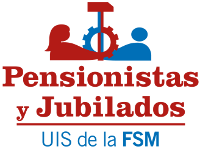Arrears are loans that need to be repaid.
The issue of salary payments arose in early 2015 and was delayed month after month as a result of the conflict between the Kurdistan Regional Government and the federal government as well as the so-called independent economy process. Finally, it resulted in forced savings in late 2015 and early 2016, particularly in February, which is against the legal requirements of the Salary Law No. 23 of 2008 and the Civil Service Law No. 24 of 1960. The money was saved for 34 months. That is, the savings have always ranged from 20% to 70%. Twelve full wages were not paid after this. Four months were in 2015, with the remaining eight months in 2019 and early 2020. Salary cutbacks of 21% and 18% were implemented over a ten-month period. It costs between ten and seventy million in Local money ((diners)) every instructor and staff. Meanwhile, salary increases have been suspended since 2015. It would have undoubtedly satisfied some of the family's and individuals' dreams and goals. In any case, the stage was completed, but with much difficulty and austerity. It was the cause of distinguishing the lights of people's hopes, as well as the death of the dreams of families and individuals in society. It is worth noting that those who have made life more difficult for the Kurdish people must not forget this and must not take the situation lightly. They should not believe that teachers and employees merely passed the stage .On the contrary, all those who have been mistreated in this position have one slogan: (Arrears are debts that must be repaid.) The silence of the Kurdistan government and the hand-to-hand policy have infuriated the people of Kurdistan. It means that it is sometimes argued that the Kurdish administration must refund the debts, and other times that Baghdad must repay the debts because Baghdad was the main cause of it. It is apparent that it was referenced in the reform initiative, and there have been several discussions about it. However, they were all unfulfilled. As far as I am concerned, the Iraqi government does not regard itself to be the primary responsible party for resolving the situation and repaying the payments, and it has announced that it is not responsible for it. The ball has now been returned to the field of the Kurdistan administration. It is past time for Kurdistan's administration to make the courageous decision to repay the money. It must not enable the people of Kurdistan, particularly those who have faced numerous challenges, to wait for assistance from Baghdad. I believe that no teacher or employee believes that their savings must be reimbursed all at once. However, if they are returned in a single payment, it is not comparable to the number of times they were forced to adopt the savings system. They merely want the Kurdish administration to confirm that it owes the Kurdish people money, and that the amount of the obligations be shown in a bank account, where it can be used and spent for various purposes. They also expect the government to reimburse as much as possible each month. It is, in my opinion, the bare minimum that the Kurdish administration can do for its teachers, employees, and loyal Kurds.
By Abdulwahed Muhammad

